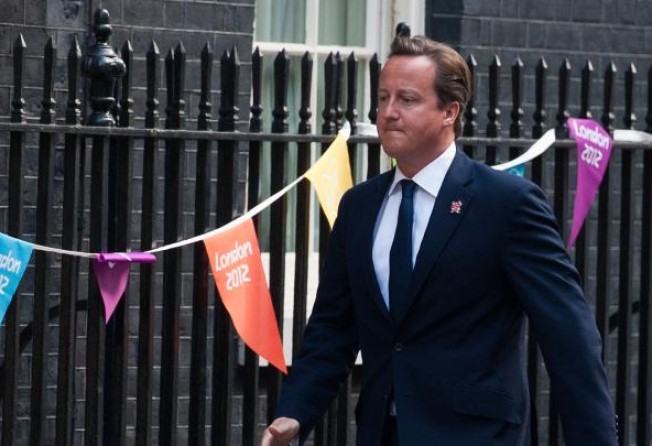British PM reshuffles ailing government

British Prime Minister David Cameron reshuffled his ailing coalition government on Tuesday, but kept unpopular finance minister George Osborne and foreign minister William Hague in their jobs.
While most of the cabinet big hitters emerged unscathed, Cameron promoted culture minister Jeremy Hunt, who has battled calls to resign over his closeness to Rupert Murdoch’s media empire, to the health ministry.
Addressing one of the pressing issues in his in-tray as parliament returns to work after the summer break, Cameron sacked transport minister Justine Greening, who was seen as blocking the expansion of Heathrow airport.
Greening becomes international development minister while Patrick McLoughlin takes over her transport brief, as the government faces increasingly urgent calls for an expansion of airport capacity in London.
In his first reshuffle since the coalition government came to power two years ago, Cameron sought to rejuvenate the Conservative Party element in the cabinet with an eye on the next general election in 2015.
The veteran Ken Clark, a former finance minister, was removed from the justice minister’s job and given a roving role as a “wise head” in government.
Cameron has moved a trusted lieutenant, Andrew Mitchell, from International Development Secretary to become chief whip, the government’s enforcer for parliamentary business.
It will be Mitchell’s job to crush the sort of in-party dissent that Cameron faced over the summer, with one senior backbencher challenging the prime minister to prove whether he was “man or mouse” over the Heathrow issue.
Theresa Villiers was promoted from a junior transport role to become minister for Northern Ireland, where two nights of rioting in Belfast has left more than 60 police injured.
But Cameron has resisted calls to remove Osborne, the Chancellor of the Exchequer who was roundly booed at the 80,000-capacity Olympic Stadium in east London on Monday when he presented athletics medals at the Paralympics.
Another key member of the cabinet, Home Secretary Theresa May, holds on to her job at the interior ministry.
The Liberal Democrat junior coalition partners were set to bring former chief secretary to the Treasury, David Laws, back into government as a junior education minister.
The well-regarded former banker was forced to quit a cabinet post just after the 2010 election over a row about a housing agreement with his male partner.
The promotion of Hunt surprised political commentators.
He had clung on to his job in April despite claims that his office leaked confidential information to Murdoch’s News Corp. over its bid to take full control of British pay-TV giant BSkyB.
Hunt, who oversaw the London Olympics as part of his role as Secretary for Culture, Media and Sport, was branded “Minister for Murdoch” by critics, but insisted he did not pass any confidential information to News Corp himself.
News Corp was forced to drop its US$12.2 billion bid for control of the highly profitable BSkyB in July last year over the phone hacking scandal at its British tabloid, the News of the World.
The US-based company still owns 39 per cent of BSkyB.
Cameron has vowed to “cut through the dither” and breathe new life into the recession-mired economy with a series of new initiatives in this parliamentary term.
But he has rejected calls to abandon his government’s policy of focusing on reining in Britain’s deficit through deep cuts in public spending.
A YouGov poll in The Sunday Times newspaper put support for the Conservatives at 35 per cent, centre-left Labour at 41 per cent, the Liberal Democrats at nine per cent and other parties at 14 per cent.
Some 60 per cent thought Cameron was doing badly as prime minister, while 67 per cent thought the coalition was working together badly.